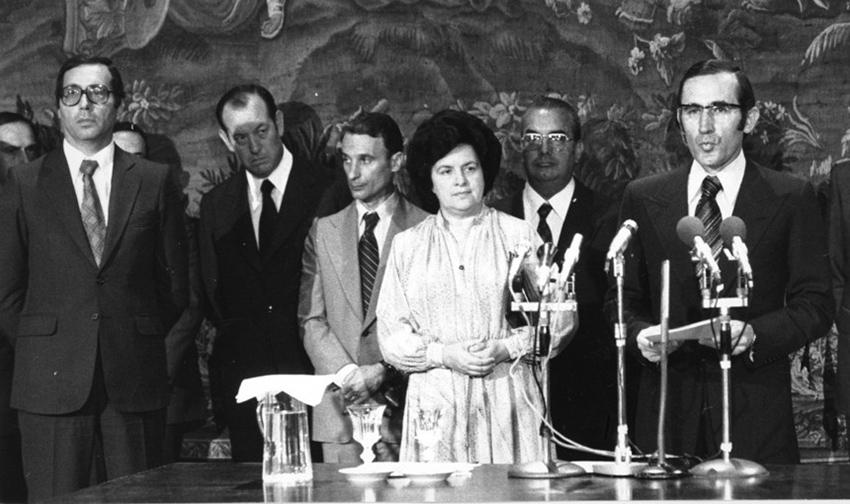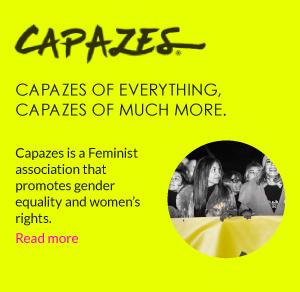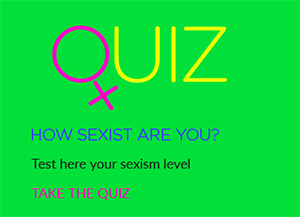 Margaret Thatcher
Margaret Thatcher
Office: British Prime Minister
“Margaret Thatcher: a better politician than wife and mother”. It’s the headline of the article written by Francis Elliot that made Times a stage for sexist accusations.
Political life in the feminine: Articles about her looks and behaviour. A distinct genre of articles is created: Hairstyles, garments and earrings holding hands with news about the nation.
In newspapers’ pages the term "iron lady" is born and would only break in 1990, when Thatcher's tears fell as she left Downing Street after being deposed. The image has become one of the most powerful of the British politics of the twentieth century.
 Angela Merkel
Angela Merkel
Office: German Chancellor
In 2005 she became the "Frau Europe" and ten years later was considered by Time magazine as the “chancellor of the free world”. The media have named Angela Merkel as "Mutter" not only of Germany but also of the entire world, a term that has a special connotation for not having children.
 Theresa May
Theresa May
Office: British Prime Minister
“She possibly has nieces, nephews, lots of people, but I have children who are going to have children who will directly be a part of what happens next.” Writes Andrea Leadsom in The Times. Theresa May is accused in 2016 by Leadsom of being a less capable candidate because she is not mother. The impact of the charges was huge and Leadsom is forced to drop out the race to number 10 of Downing Street.
 Maria de Lourdes Pintassilgo
Maria de Lourdes Pintassilgo
Office: Portuguese Prime Minister
The nomination of Maria de Lourdes Pintassilgo from 1979 to chief of government of the V Constitutional Government caused an embarrassment of language in the national media:
In the designation of political positions, the masculine was always used. It denounced the inequality of sexes.
Maria de Lourdes is the third woman in Europe to be Prime Minister.
“Simplesmente Maria”, is the title of an article that doesn’t leave aside a religious association which also highlights the Catholic education of the Prime Minister. Her personal life gains more importance than her political life.
 Leonor Beleza
Leonor Beleza
Office: Minister of Health
Leonor Beleza played an important role in the Commission on Womanhood, which was part of the working group that reformed the Civil Code. The great achievement was to delete all discriminatory factors between men and women. In 1985 according to «O Jornal» she was named for Minister of Health, becoming the first woman to take a position of this nature since 1975.
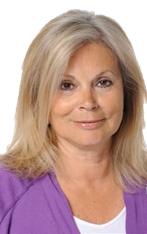 Edite Estrela
Edite Estrela
Office: Mayor of Sintra
She presented the presidency application for Sintra City Council in the summer of 1993. She installed herself in the village and covers more than three hundred hectares of the county to know the reality of the parishes. At that time, she was a member of the Assembly of Republic and a promoter of media literacy.
 She wins the elections in Sintra and raises the village to World Heritage of Humanity.
She wins the elections in Sintra and raises the village to World Heritage of Humanity.
She is member of the European Parliament since 2004 and president of the Portuguese Delegation of the European Socialist Party.
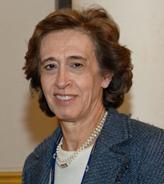 Manuela Ferreira Leite
Manuela Ferreira Leite
Office: Minister of Finance and Education
In Portugal media coverage of women's figures in politics gives more attention to details such as clothing, make-up and hairstyles. Manuela's path was marked by these details, always presenting herself as a monotonous and wintry figure. "The visit of Ferreira Leite to “Gato” was a surprise. Two million of Portuguese saw her laugh for the first time. And was it the last one?” Expresso.
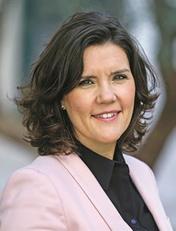 Assunção Cristas
Assunção Cristas
Office: Party leader CDS-PP, Minister of Agriculture, Sea, Environment and Spatial Planning
She was the first woman to minister in Portugal during pregnancy. Regarding media attention to her pregnancy or visual changes, Assunção Cristas said she doesn’t mind with comments, "they are expected in our society that is much more demanding with women - the girls want to be beautiful, vain and arranged". In 2006, she shared a photograph with a less conventional clothing style for a politician that created several comments on social media.
 Odete Santos
Odete Santos
Office: Política, Advogada e Atriz
It is one of the crucial personalities of Portuguese politics, an image that not all of the female class conforms with. From her appearance to her personal style, the ex-deputy communist is one of the most important media figures and the most caricatured Portuguese figures, not only for her political ideas.
 Hillary Clinton
Hillary Clinton
Office: Candidate for US President, First Lady, Lawyer and Secretary of State
“If I want to knock a story off the front page, I just change my hairstyle” said Hillary Clinton. A sentece that illustrate a media coverage of which politician women are targeted.
Controversies: Neckline that caused controversy. The episode was known as "cleavagegate". Even her voice was scrutinized during the 2016 presidential elections.
 One “lecturing tone” and a “not-so-attractive voice”, Said a Fox News commentator.
One “lecturing tone” and a “not-so-attractive voice”, Said a Fox News commentator.
There is a great difference in journalistic treatment over male colleagues. A difference that followed her throughout her political career.
The personal criticism has another target: The fact that Hillary is married to Bill Clinton, also White House occupant. Her interactions with her husband were analyzed and questioned in detail.
By the time she became the first woman to win the Democratic Party nomination for the Presidential elections, her husband's shadow pursued her in the Media. The day after the nomination, Bill Clinton made headlines in some American newspapers. Sexism in political campaigns led to the creation of a guide to neutral coverage, at a time when more and more gender conventions are changing, and the 2016 campaign has left a mark on the history of gender equality.
 Eva Perón
Eva Perón
Office: Argentina Leader
In just 7 years she became one of the most powerful women in the world. She gradually captivated the support of the population, specially of "descamisados".
With her talent as a speaker, Evita also becomes the spokeswoman for her husband and the first woman to do campaign throughout Argentina. The Media and the people seduce each other. After her premature death, Eva Perón becomes a symbol of Freedom, although some Media continue to connect her political power to the power of Peron's government.
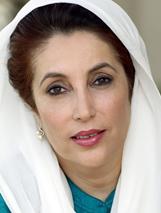 Benazir Bhutto
Benazir Bhutto
Office: Pakistani Leader
Since the beginning of her political career she was destined to be an icon. In the eyes of the West, she was the first woman to be democratically elected in a Muslim nation. In 1988 she won the elections and became the prime minister of Pakistan, an event regarded by the Media as rare. Bhutto's greatest achievement was the strength she was able to give to her nation.
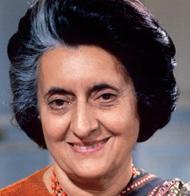 Indira Gandhi
Indira Gandhi
Office: Head of Government of India
Indira made her political debut in 1939, with the party of the Indian National Congress. She was the first woman to hold the post of chief in the Indian government and developed a program that improved the population conditions. Indira is murdered by two of her security guards, both Sikhs, who belonged to the religious faction opposed to hers. The political activist has become a timeless symbol in India and the rest of the world in the struggle for human rights.

